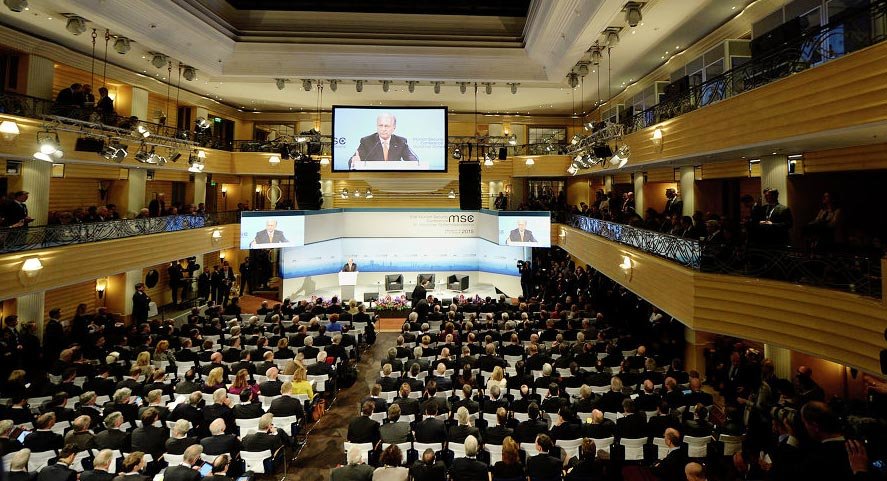The recent Munich Security Conference this year, with the presence of representatives from various countries – except for Russia and Iran – was held for two working days, and political leaders, foreign and defense ministers, personalities, and civil institutions of 120 countries delivered speeches and talked with one another regarding various security issues and cyberattacks.
This conference, which is known as a good opportunity to raise global security issues and exchange views on various global challenges, this year emphasized multiple issues, the most important of which were:
- Russia’s Invasion of Ukraine: Following the invasion of the Russian forces into Ukraine, the issue of providing weapons to Ukraine and the role of Western countries in providing them were a matter of discussion and dialogue.
- Cyber Threats: The discussion about cyber threats and the role of new technologies in global security was one of the important topics of the conference.
- Climate Change and Security: The impact of climate change on global security and taking necessary measures by international organizations and countries were analyzed by the participants.
- Terrorism and the Escalation of Threats: Discussions were held on the solutions to deal with the spread of terrorism, the escalation of threats in the region and the world, and how to deal with it.
- Gaza War: Preventing the humanitarian disaster against Gazans, mechanisms of establishing a truce, and how to end the conflict.
The conference’s main topics were divided into “Gaza War” and “Ukraine War”. Ukrainian President Volodymyr Zelensky, who was present at the conference, emphasized that the shortage of arms was a major problem faced by Ukraine in its defense against Russia. Addressing the leaders of the Western countries with concern and in explicit terms, he renewed his demand for military aid.
This is while the Russian artillery fire shells against Ukrainian artillery shells and mortars have increased significantly in recent months. As a result, Ukraine has been forced to retreat from Udiyoka in the past few days.
Russia has dramatically increased its production of artillery shells, tanks, armored vehicles, and missiles in recent months.
Most Western allies plan to increase their military production so that Kiev can withstand Moscow’s pressure in 2024 by providing more arms to Ukraine.
At the same time, there are questions from NATO’s European allies about what they actually need to do to prepare for a possible wider war with Russia.
In this regard, Olaf Scholz, the Chancellor of Germany, stated: “If any Russian soldier sets foot on NATO soil, we will defend it by all means.” He said Germany, often criticized for not spending enough on defense, would meet NATO’s target of spending 2 percent of GDP on the military through “the 2020s, 2030s and beyond.”
Meanwhile, Zelensky also expressed his disappointment that the US House of Representatives is going into a two-week recess without approving $60 billion in aid to Ukraine. He considered the fall of the city of Avdiyoka in Ukraine by Russian forces last weekend as the reason why the Republicans did not decide on this bill.
The bill passed the U.S. Senate by a 70-29 vote and is now stalled in the House due to procedural disagreements stemming from Republicans’ stance on Ukraine and House Speaker Mike Johnson’s frustration that the bill does not do enough to secure the US-Mexico border.
Israeli Invasion of Gaza
Last month, the Biden administration previewed its new plan for the Middle East through New York Times columnist Thomas Friedman, a longtime favorite of the president. “We are about to unveil a new strategy from the Biden administration to address the multifaceted challenge involving Gaza, Iran, Israel, and the region,” Friedman wrote. “This moment is a dangerous moment.”
Considering the continued attacks of the Zionist regime on Gaza, the important question that is raised is whether decades of close relations and unparalleled military support of the US to the Israeli regime have not made the White House able to influence the war in Gaza, what hope can we have for the success of the efforts to stop the attacks of the Zionist regime and to create peace and stability in the region?










0 Comments